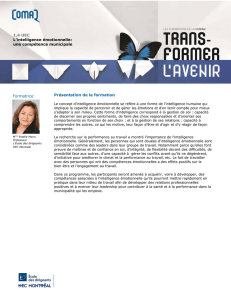
In an interview with Gamespot last June, Google VP Phil Harrison attempted to downplay the threat US broadband caps pose to Stadia’s success. 21 percent say they weren’t sure one way or the other whether their broadband was metered. Of the 943 gamers surveyed by the company, only 17 percent were certain they had a broadband cap.

The result will be an even higher broadband bill for US consumers who already pay some of the highest prices in the developed world for bandwidth. And that’s just the bandwidth consumed by gaming it doesn’t include music and video streaming or other activities. Were those gamers to all shift to Stadia as their primary game platform at 4K, they’d burn through 1,386 GB of data monthly. “Our survey findings point to a potential disconnect between consumers and the services they use, showing that our transition into game-streaming nirvana may be a bumpier one than many expect,” the study said.Īccording to data from The NPD Group, America's estimated 34 million gamers play 22 hours per week on average. Needless to say, that gets expensive quickly. ISPs impose usage caps as high as 1 terabyte, then sock you with additional surcharges for extra bandwidth consumed. With US monthly broadband caps as low as 150 GB in many regions, you can see the problem.Ī new study by broadband availability tracking firm BroadbandNow found that 6 million of the country’s 34 million gamers will exceed their broadband caps using Stadia. The service, which eliminates the local console by streaming all games from the cloud, will consume as much as 15.75 GB per hour at 4K resolution. Google’s new Stadia streaming service is about to shine a light on the unfairness of such limits.

#Capsy study tv
Experts say the real purpose of such limits is to covertly jack up your already expensive broadband bill-and punish customers looking to cut the cord on traditional cable TV services. There’s no technical reason for them to exist, and they don’t actually help internet service providers (ISPs) manage network congestion. The study makes specific recommendations to help curb rising costs and make better use of the resources the government already has.įor more information contact Kerri-Anne Finn, CCPA Senior Communications Officer, at 61 x306.Broadband caps are, if you didn’t know, complete nonsense. “With the federal government running a significant deficit, it is more important than ever to examine measures that offer potential savings while maintaining services.”

“Without prompt corrective action, outsourcing costs will continue to soar,” Macdonald says. Their payrolls increased by only 9% since 2005-06, but their personnel outsourcing costs exploded, rising by 100%. “This system of parallel HR is where government managers are turning after last year’s departmental caps.”įour large departments-Public Works and Government Services Canada, National Defence and Canadian Forces, Human Resources and Skills Development, and Public Safety and Emergency Preparedness-make up half of all federal government outsourcing. Contractors aren’t coming in for a week to do some filing, they are now being hired on contract for years at a time to work beside regular employees, “ Macdonald says.

While federal departments have had their budgets capped, expenditures on outside consultants have not been touched and remain above $1 billion a year,” says Macdonald. “Over the past five years, personnel outsourcing costs have risen 79%. OTTAWA-If the federal government wants to get serious about spending controls, it needs to look critically at its ballooning outsourcing costs, says a new study released today by the Canadian Centre for Policy Alternatives (CCPA).Īccording to the study, by CCPA Research Associate David Macdonald, the growing and concentrated nature of outsourcing has created a shadow public service that works alongside the real public service-but without the same hiring practices or transparency requirements.


 0 kommentar(er)
0 kommentar(er)
